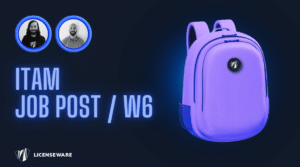The Price of Freedom: Confronting the Sustainability Crisis in Open Source

The modern digital world, a multi-trillion dollar economy of cloud computing, artificial intelligence, and global connectivity, is built upon a foundation that is paradoxically both immensely powerful and dangerously fragile. This foundation is free and open-source software (FOSS), a vast ecosystem of tools and components often maintained by a handful of volunteers. For decades, the tech industry has drawn from this well of innovation with little thought to its replenishment. Now, a growing chorus of voices, including prominent advocates like Bradley Kuhn of the Software Freedom Conservancy, is warning that the bill for this “free” lunch is coming due, forcing a difficult conversation about the true price of software freedom.
The core of the issue lies in a fundamental misunderstanding of the word “free.” In the context of FOSS, “free” refers to liberty, not price. It is defined by the four essential freedoms outlined by the Free Software Foundation: the freedom to run, study, change, and redistribute the software.[1] These freedoms have been a catalyst for unprecedented innovation, allowing developers to build upon the work of others, creating the complex digital infrastructure we rely on today.
However, this reliance has created a precarious situation. Critical software components, used in everything from national security systems to commercial banking applications, are often managed by one or two unpaid developers in their spare time. This model is not sustainable. Recent security crises, like the xz Utils backdoor attempt, have starkly illustrated the risks of under-resourced projects, where maintainer burnout and lack of support can open the door to catastrophic vulnerabilities.
A Call for Sustainable Stewardship
This is the challenge that organizations like the Software Freedom Conservancy (SFC) are working to address. The SFC’s mission is to “ensure the right to repair, improve and reinstall software” by promoting and defending FOSS projects.[2] Bradley Kuhn, the SFC’s Policy Fellow and a long-time activist in the movement, argues that the industry can no longer treat FOSS as a free-for-all buffet.[3] He contends that the corporations profiting most from this software have a responsibility to contribute to its long-term health.
This is not a call for charity, but a demand for responsible supply chain management. The “price of freedom,” as Kuhn and others frame it, is the investment required to keep the FOSS ecosystem secure and sustainable. It is about moving from a model of passive consumption to one of active stewardship, ensuring that the developers who maintain this critical infrastructure are properly supported.
Paying the Price Without Selling Out
The crucial question, then, is how to fund FOSS without compromising its core principles of freedom and openness. The solution is not to turn open-source projects into proprietary products with restrictive licenses and subscription fees. Instead, the community is exploring a multi-faceted approach to sustainability.
One key model is the non-profit conservancy. Organizations like the Software Freedom Conservancy, the Apache Software Foundation, and the Linux Foundation act as non-profit homes for FOSS projects.[1][3] They provide essential infrastructure, including legal services, financial management, and license compliance enforcement, allowing developers to focus on what they do best: writing code.[4]
These foundations are typically funded through a combination of corporate sponsorships and individual donations. This model allows companies that rely on a particular project to invest in its stability and future development directly. It creates a formal channel for the industry to pay the “price” of using FOSS, ensuring the software remains a healthy, shared public resource rather than a private, proprietary asset.
Corporate Responsibility and the Future of Freedom
While many large technology companies are significant contributors to open source—employing key maintainers and funding major foundations, the problem of widespread consumption without contribution persists. For every company that gives back, there are countless others that use FOSS extensively without providing any financial or developmental support.
The ongoing debate is about shifting the culture of the entire industry. It is about recognizing that the health of the open-source ecosystem is not someone else’s problem; it is a shared responsibility. The sustainability of FOSS is a prerequisite for the continued innovation and security of the entire technology sector.
The conversation ignited by advocates like Bradley Kuhn is not an attack on the ideals of software freedom. It is a defense of them. Ensuring that FOSS projects are financially stable and that their maintainers are supported is the only way to guarantee that the four freedoms will endure for the next generation of developers and users. The price of software freedom is the collective investment required to secure its foundations. It is a price the technology industry can no longer afford not to pay.
Sources
- Britannica (July 3, 2025) https://www.britannica.com/technology/free-software
- Software Freedom Conservancy (2022) https://sfconservancy.org/about/
- Software Freedom Conservancy (2025) https://sfconservancy.org/about/staff/
- The Register (July 12, 2025) https://www.theregister.com/2025/07/12/the_price_of_software_freedom/
- FOSS Foundations (2025) https://fossfoundations.org/sfc/










